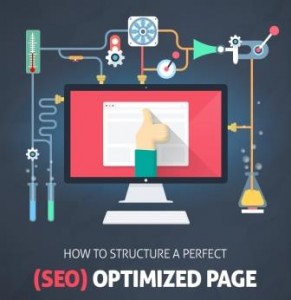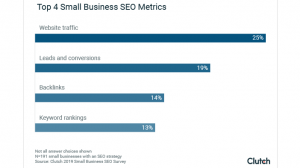
Research suggests that 50 percent of all voluntary turnover occurs during the first year of employment. Those who leave cite a poor fit within the organization. An engaging and immersive onboarding experience often works wonders in overcoming these feelings. And yet, some issues stem from the workers themselves. As author and leadership expert Robin Camarote writes, “Too often, new employees make avoidable, irritating mistakes that can make it difficult to become one of the team.” This can ring especially true in MSP programs, where talent know they’re not full-time staff or permanent team members. Fortunately, there are some key steps staffing partners can take to help alleviate MSPs — and their talent — of these potential pitfalls.
Emotionally Intelligent Onboarding
With fierce competition for skilled talent, retention and performance are two of the most pressing demands for employers. Even in contingent labor programs, it’s imperative that workers remain committed to the mission, see their assignments through and integrate well with existing teams. Findings by Impact Instruction Group reveal some compelling reasons for hiring managers and HR leaders to focus on the strength of their current orientation processes.
- Nearly one-third of people employed in their current job for less than six months are already searching for new career opportunities or employers.
- Close to one-third of executives who join organizations as external hires fail to achieve expectations during their first two years on a new job.
- With annual attrition rates of 10 percent to 15 percent, companies are turning over almost 60 percent of their entire talent base within four years.
For a lot of folks involved in hiring, onboarding has probably become the jumping-off point at the end of a long recruitment journey. After all the efforts to source, screen, interview and place qualified talent, the onboarding process can lapse into an afterthought — especially when client hiring managers know that staffing suppliers are the employers of record. Onboarding, however, is not about training professionals on their work. It’s about preparing them to bring their skills to a specific role at a specific company, with its own unique culture. That means it’s also about instilling a sense of belonging and team unity. And as Camarote observes, sometimes workers become their own obstacles. So perhaps it’s time to bring some emotional intelligence to the onboarding process.
As Google has demonstrated since 2007, with its groundbreaking “Search Inside Yourself” program, emotional intelligence is the cornerstone of superior collaboration. In many ways, mastery of emotional intelligence determines the success of a team. Google’s introspective mindfulness program was conceived by engineer Chade-Meng Tan. He laid out a simple yet effective course that teaches people how to take charge of their emotional responses, think clearly, remain calm during anxious situations, listen actively, and pause before acting. The program covers five components of emotional intelligence: self-awareness, self-regulation, motivation, empathy, and social skills.
Most MSPs probably don’t have the bandwidth to run new talent through a full-fledged emotional awareness seminar. However, their staffing partners can use some of those core principles to help workers transition seamlessly to the culture.
Avoiding Counterproductive Behaviors
Even a little emotional intelligence can produce tremendously positive outcomes. By coaching new talent to avoid common yet counterproductive behaviors, an MSP’s staffing partners can get their workers started off on the right path — without the need to correct misunderstandings or spend precious time in damage-control mode.
More Socrates, Less Sheldon Cooper. The philosopher Socrates famously quipped, “I know one thing, and that is that I know nothing.” Fictional physicist Sheldon Cooper — the know-it-all main character of television’s “The Big Bang Theory” — famously quipped, “Don’t you think that if I were wrong, I’d know it?” Socrates and Sheldon are both brilliant thinkers. Based on their attitudes, though, Socrates is clearly more open-minded and likely to work well in a collaborative environment. Sheldon’s arrogance would probably make him instantly unpopular and even resistant to other ideas.
As Camarote explains, “Successful new employees never approach the problem as the ‘know it all’ expert with the only solution.” A new contingent worker is brought into the program to bolster the aptitudes of the team. An individual who feels he or she is superior — and constantly reminds colleagues of this opinion — isn’t likely to fit in, collaborate, consider new ideas or take constructive feedback well. Sometimes the behavior is arrogance, yet more often it’s a nervous brag to establish one’s self as an equal contributor. Either way, it’s a problem.
Staffing partners can prevent the issue by encouraging their talent to spend a couple of weeks thoughtfully observing the dynamics of the team, learning everything they can about the organization, and understanding the broader mission and goals of the business. In doing so, staffing providers ensure that the recommendations and contributions of their workers will be meaningful.
See Humans, Not Hives. True teamwork springs from the collective contributions of individuals, not the individual mind of a collective. A highly productive team thrives on diversity, and that includes different perspectives, skills, strengths, experiences and expertise. Combined, all of these qualities deliver exceptional results. Every member in the group is unique and in possession of independent talents. An MSP’s staffing partners can help by creating opportunities for socialization.
Immediately after the formal onboarding process, staffing professionals should consider coordinating some form of casual group interaction as part of the overall experience. Curiosity about the program isn’t restricted to the new talent. Client personnel and MSP program managers want to know more about the incoming workers. A friendly and informal gathering facilitates conversation, knowledge transfer, team building and a sense of camaraderie among all the stakeholders in the program.
It’s a Project, Not a Pit Stop. Camarote astutely notes that “new coworkers and organization leadership want to feel that their teams are ‘in it’ for the long haul, even when they understand the transient nature of the workforce.” This point is particularly salient in an MSP program where talent know they are working on an assignment. Still, it’s crucial to let contingent workers know that they are valued members of a team and that their work matters. Even a temporary relationship is a relationship that others have invested in.
This is where staffing partners have a golden opportunity to continue the onboarding experience in a manner that fosters retention, loyalty, ongoing performance improvements and employee engagement. They can help their MSPs and their talent by remaining present. Encourage ongoing meetings with new workers to discuss the job so far, answer new questions, provide opportunities for reflection and thought, digest the information imparted during training, and repeat topics that may have been confusing or missed. Ensure that recognition and input occur regularly. Showcase the opportunities they will gain from the assignment: developing new skills, learning a new industry and acquiring knowledge that will translate to other opportunities with other clients.
Just because an assignment ends, a relationship doesn’t; the worker’s role with his or her staffing firm can continue. Giving high-performing talent the chance to take on new assignments after the current engagement ends can foster a real sense of appreciation and longevity.
Great Onboarding Involves Emotional and Functional Awareness
Onboarding should not simply be the last formality of a hiring process — and it shouldn’t include just functional awareness of the role. Onboarding must be a shared experience, where every stakeholder has a part to play. In that way, it’s a human experience that shines when emotional awareness becomes an integral part of the mix. Onboarding doesn’t end after the last form has been signed. It’s a transitional approach that eases new hires into their jobs and teams, with the tools and support they need. By taking a little time to focus on emotional intelligence, staffing providers can ensure that their workers will integrate flawlessly with the business culture. And that leads to a strong, flourishing MSP program.
Photo by Dean Mitchell (c)
Business & Finance Articles on Business 2 Community(58)






